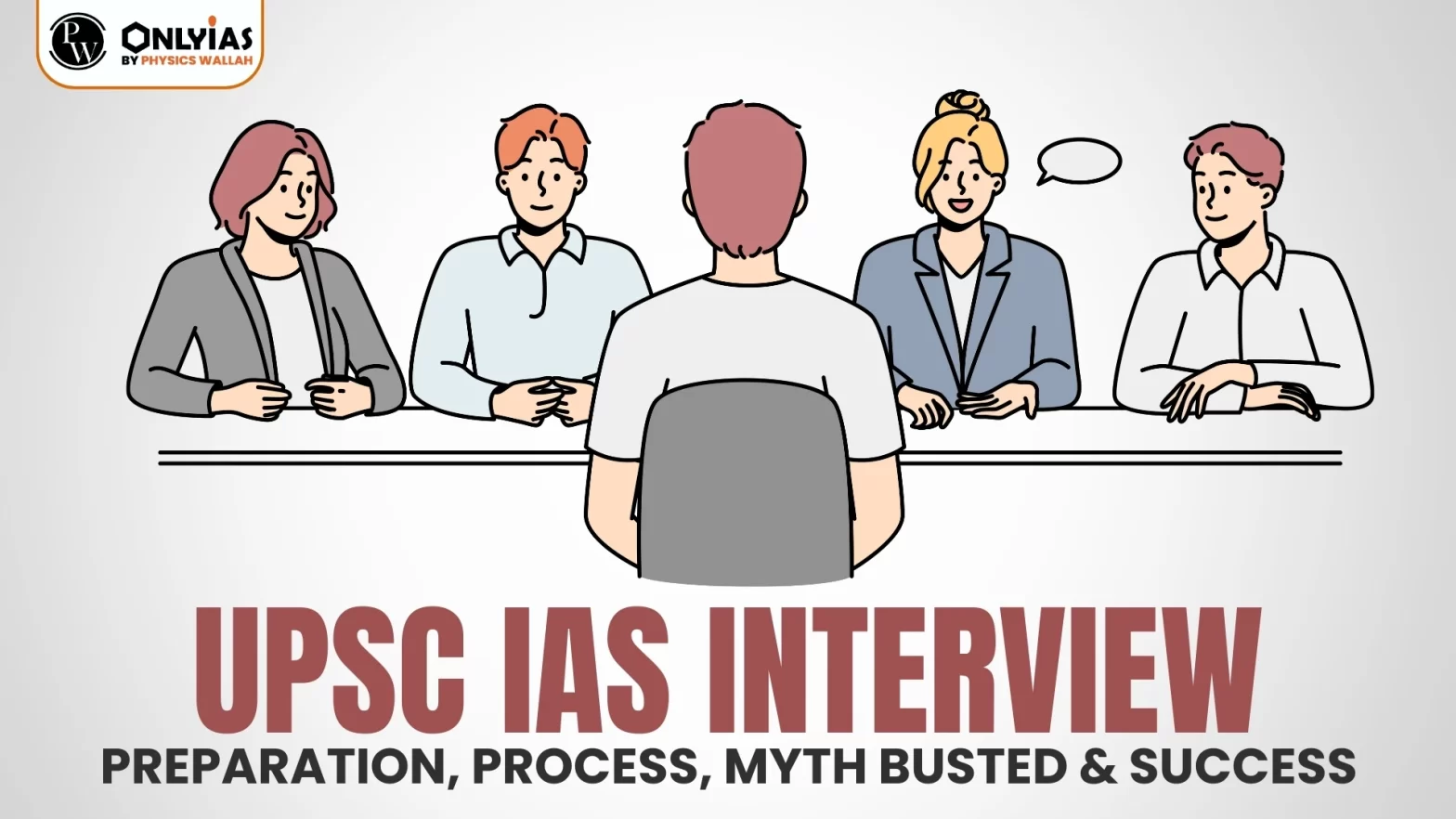Analyzing UPSC IAS interview myths! Learn the truth about preparation, evaluation criteria, and dispel common misconceptions. Boost your confidence for success in the prestigious UPSC examination.

The Union Public Service Commission (UPSC) interview, also known as the Personality Test, is a crucial component of the UPSC examination process.
Established as the constitutional body in India, the UPSC conducts examinations to select candidates for various prestigious civil services, including the Indian Administrative Service (IAS), Indian Police Service (IPS), and Indian Foreign Service (IFS), among others.
Aspirants aiming for the UPSC CSE frequently encounter various myths and misconceptions related to the UPSC IAS interview. By dispelling these prevalent misconceptions, our aim is to bring clarity and assist candidates in preparing more effectively. It’s crucial to recognize that the UPSC IAS interview is a comprehensive assessment of a candidate’s potential, and achieving success hinges on diverse factors. Therefore, concentrate on cultivating a well-rounded personality, staying abreast of current affairs, and refining your communication skills. With the appropriate preparation and the right mindset, you can approach the UPSC IAS interview with confidence, enhancing your prospects of success in this esteemed examination.
| Must Read | |
| NCERT Notes For UPSC | UPSC Daily Current Affairs |
| UPSC Blogs | UPSC Daily Editorials |
| Daily Current Affairs Quiz | Daily Main Answer Writing |
| UPSC Mains Previous Year Papers | UPSC Test Series 2024 |

<div class="new-fform">
</div>